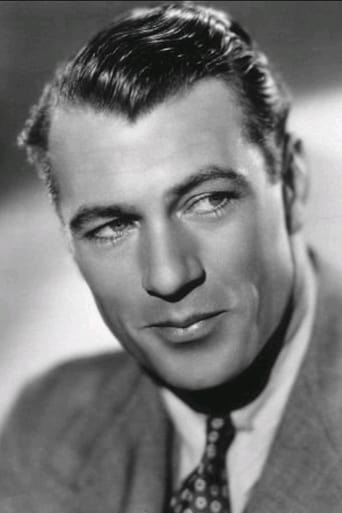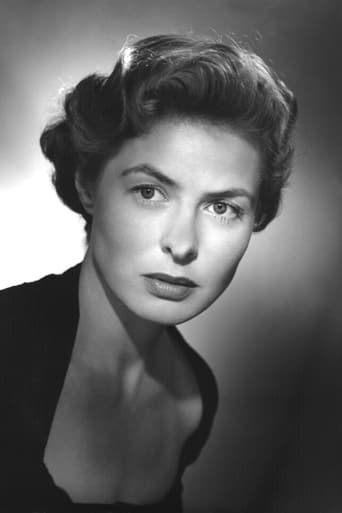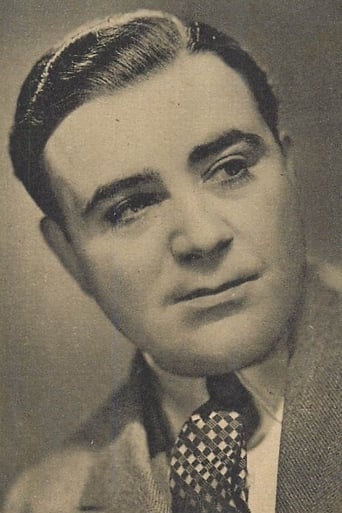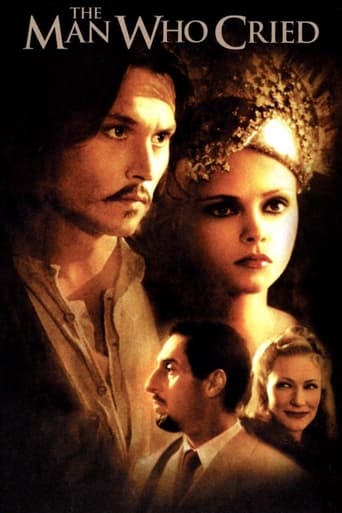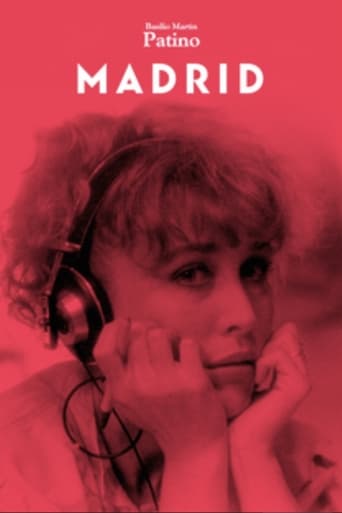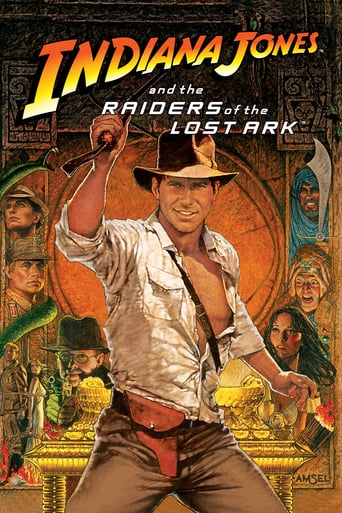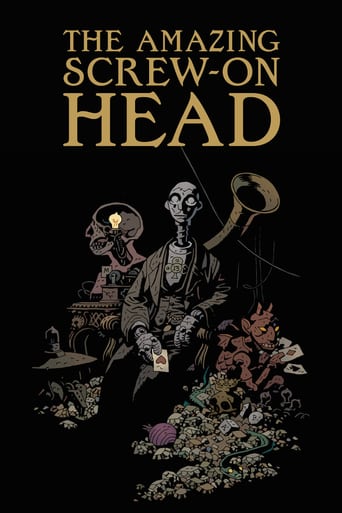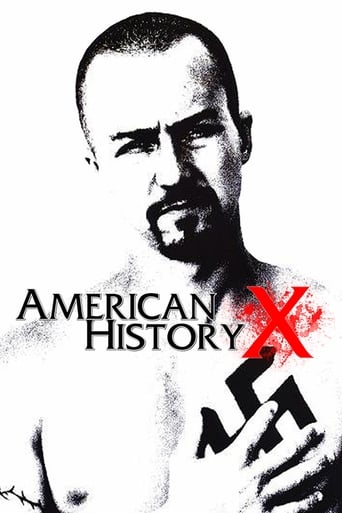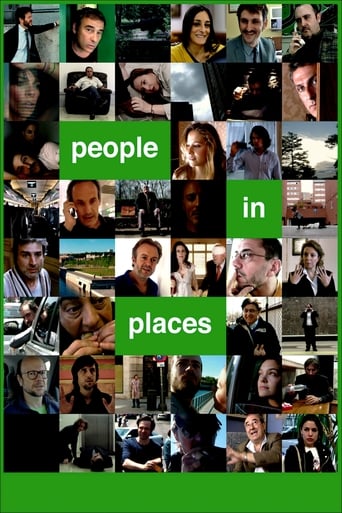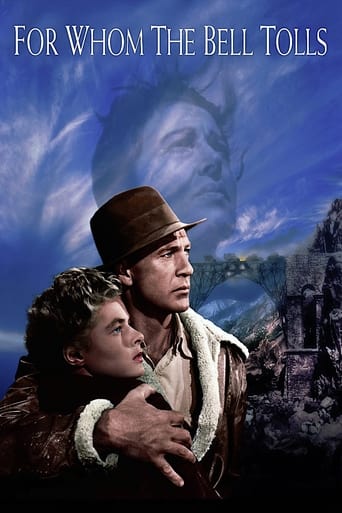

For Whom the Bell Tolls (1943)
Spain in the 1930s is the place to be for a man of action like Robert Jordan. There is a civil war going on and Jordan—who has joined up on the side that appeals most to idealists of that era—has been given a high-risk assignment up in the mountains. He awaits the right time to blow up a crucial bridge in order to halt the enemy's progress.
Watch Trailer
Cast
Similar titles
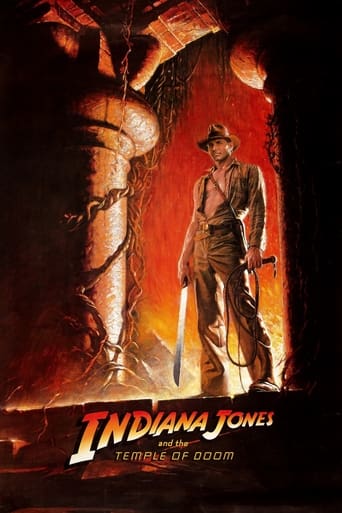
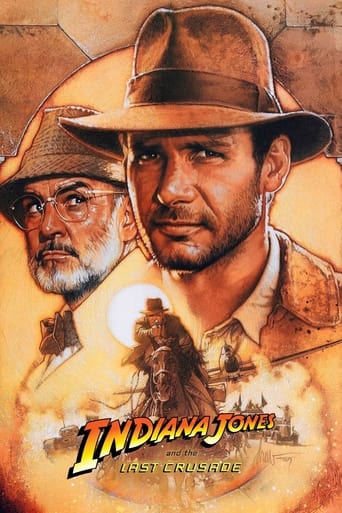
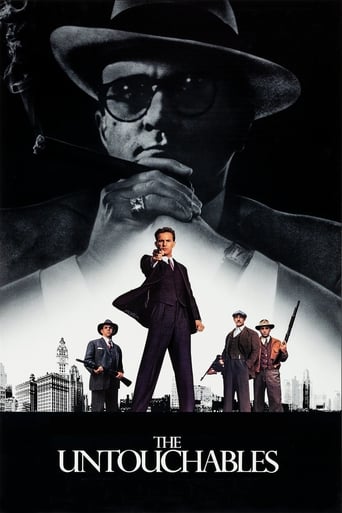
Reviews
I like the storyline of this show,it attract me so much
Fresh and Exciting
If the ambition is to provide two hours of instantly forgettable, popcorn-munching escapism, it succeeds.
There are moments that feel comical, some horrific, and some downright inspiring but the tonal shifts hardly matter as the end results come to a film that's perfect for this time.
Undoubtedly the major project of Sam Wood's career. This itself is a wonderful oddity that could only occur in fabled Hollywood. Sam Wood was a staunch anti-Communist who was directly responsible for the McCarthy witch hunts and here he is dedicating himself to a film in which the Communists are presented as heroes! Admittedly, the script makes some attempt to confuse these political realities by calling the Communist Loyalists "Republicans" and the opposing Fascists "Nationalists", but this subterfuge will fool no-one.Anyway, the wheeling and dealing which went into the making of the film is almost as interesting as the film itself. Briefly, Wood was forced to make The Pride of the Yankees for Goldwyn (in order to secure Cooper's services) in the middle of production. He had actually commenced Bell late in 1941, filming non-Cooper scenes in the High Sierra Nevada Mountains of northern California. Bell was then suspended while Wood made the Goldwyn picture, resuming production in June 1942 in the Sonora Pass district of the Sierras. The company remained on this difficult location (at an elevation of ten thousand feet) until the first week in September. Returning to Paramount studios for interior scenes, shooting was finally completed by the end of October.For all its difficulties and subsequent acclaim, For Whom the Bell Tolls is a bit of a disappointment. True, it captures a great deal of the Hemingway spirit and flavor, the locations are often breathtaking and Bergman never gave a more poignant or moving performance, but the film (even in its shortened form) is too long to sustain the interest of even the most indulgent audience. The problem of course is Dudley Nichols' screenplay. Verbose and over-talkative on the one hand, lacking in plot development and tension on the other (just about all the action excitement is saved for the climax), its characters are one-dimensional "types" and its story moves sluggishly to an absolutely foregone conclusion.Of the supporting players, only Katina Paxinou (who fully deserved her Academy of Motion Picture Arts and Sciences' award) manages to rise above the speechiness of her dialogue to clothe her character in real flesh and blood. Tamiroff (assisted by moodily shadowy photography) over-acts his villainy to such an extent one seriously questions the sanity of the other players who are taken in by his gross and clumsy attempts at deception. This further robs the script of tension.Fortunately, Cooper and Bergman do rather better. Cooper is always reliable, though his slow mannerisms tend to make a slow plot even slower and he is just a little too credulous (and too idealistic) to be always 100 per cent sympathetic. But he is 90 percent believable and his restrained performance is far more engrossing than the ripe scene-chewing indulged in by Tamiroff, Sokoloff and company.Bergman of course is absolutely perfect. The screen literally lights up whenever she is on-camera. Equally luminous as her performance in Casablanca yet totally different in scope and character, Bergman proves herself to be the cinema's foremost dramatic actress of the 1940s.In addition to Bergman's winning portrayal, the film's other assets are its most attractive music score and its wonderful photography. Wood and Menzies make such effective use of the High Sierra locations, they tend to show up obvious studio matte and model work. Menzies brilliantly planned the dramatic camera angles so that compositions and lighting frequently stir the senses.Certainly worth seeing - but don't expect a totally gripping, totally involving entertainment (except when Bergman is on screen).
This is a fine film, very popular in its day for depicting the desperate fight for freedom that even civilians engaged in by choice, at a time when democracy was in fact truly threatened and there was a very real possibility it would disappear from the earth. Because of the bravery of so many men and women of that time, the freedom that many today take for granted was assured. But it is by no means permanent.The film is relatively heavy but certainly many modern films about current events are equally heavy. One is either involved or not but I found it a great story of a small group of people who have survived a great deal of pain in life and who have little to lose. The film presents the characters very well, allowing us to like and understand them. It was shot in Technicolor on realistic locations and beautifully designed by William Cameron Menzies. The music by Victor Young is outstanding.In case anyone may not know, Ingrid Bergman was the choice of Ernest Hemingway. In fact, he went out of his way to see to it that the ballet dancer and actress Vera Zorina, who was originally cast and who had begun shooting the film, was replaced by Bergman. Hemingway also wanted Gary Cooper and no one else to play Robert Jordan. How can these actors be 'miscast' when the author who created the characters felt they were perfect for the roles?
The Spanish Civil war is a conflict that has seared itself upon the romantic idealist . It's good versus evil of fascists on one side and idealistic freedom fighters from all across the world fighting to save a democratic socialist Republic from the jackboot of Hitler , Mussolini and Franco . Of course much of this conflict has been romanticized . It's often forgotten that Joseph Stalin was supporting the Republican cause while following his own agenda and the leftists spent more time fighting amongst themselves rather than fighting the Falangists . Regardless of this I've always viewed it as good versus evil , an opinion reinforced by a conversation I once had with a Spanish workmate who was of " Marrano Converso " linage whose grandparents were murdered by the Franco regime . I told her gloomily that's the worst thing about the 21st Century - there's no crusades to go on , no chance of jumping on a plane and changing the world . Though later when I thought about it there is a modern day equivalent and that is young people joining the military in NATO countries knowing fine well they'll be serving in Afghanistan fighting against murderous jihadists . Was it not Orwell himself who described all tyrannies being " theocracies in nature " ?Perhaps idealism gets the better of me and I have grown out of it because the opening scene of FOR WHOM THE BELLS TOLL has stayed with me since childhood . Two freedom fighters blow up a train , make their escape only for one of them to be wounded and he begs his comrade to shoot him . It's an impressive scene though its impact is negated having been done so many times in other films . I guess this was probably the first time I'd seen this type of scene and that's why it stayed with me . The mind of a child is very impressionable and idealistic I'm afraid that my idealism towards this film has become somewhat revisionist after seeing it again as an adult. Not a lot happens in the movie which is composed of a handful of characters sitting on two or three sets of studio exteriors spouting clichéd melodramatic dialogue along with an annoying incidental score that never seems to go away . Interesting to note that the screenplay has most of its politics exercised and there's only one scene where the idealistic manly hero Robert Jordan played by Gary Cooper at his most wooden explaining the reason why he joined the good fight This means you're a watching a film lacking in scope . When I say nothing much happens I mean this literally . Some people might appreciate the set design or cinematography but the film concentrates on the romance between Jordan and Maria and Jordan's abrasive relationship with the band of Gypsies . There's very little sense of time and place and I had to keep reminding myself that it's set in Spain in 1937. It's also a film that is very static and dated even to fans of Classic Hollywood like myself and someone would do better reading George Orwell's Homage To Catalonia than watching this Hollywood melodrama
I think this movie was uneven, and not very interesting at all until the end. THAT, though, was magnificent! It was also a pity that Cooper had to wear that silly, ugly hat almost all the time; it destroyed his looks so much! Ingrid Bergman was very beautiful, but her very strong Swedish accent and typical Swedish looks were totally wrong for her part. It seemed a little odd, also, that Maria was so smiling and happy all the time - when she had gone through such an awful experience as a gang bang recently. The woman playing Pilar was wonderful though - strange that I had not even heard of her before.I did not like the ageism. I mean when Pilar, who was of Robert Jordan's age (at least the actors playing them were of the same age), talked about herself as an old woman, and seemed to think that it was a matter of course that it was Jordan and the very young Maria who should become a couple. That no one could love _her_ anymore, when she was only 43...It was difficult to understand what the war was all about, and who the waring parties were. But I read now that the filmmakers did this on purpose - for political reasons.But the worst thing was, that the movie did not feel like "Hemingway". It could have been any action story.

